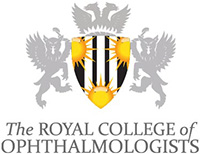Workplace Based Assessments (WpBAs)
The following WpBA assessment tools are available for OST:
| Tool | Code | Number of tools | Main Learning Outcome Domains Assessed |
| Clinical Rating Scale (modified CEX) | CRS | 11* | Clinical Assessment; Practical Refraction |
| Case-based Discussion | CbD | 1 | Patient Investigation; Patient Management; Communication; Information Handling; Attitudes, Ethics and Responsibilities; Decision Making, Clinical Reasoning and Judgment; Role in the Health Service; Continuing Personal and Professional Development |
| Direct Observation of Procedural Skills | DOPS | 2 | Practical Skills; Communication |
| Objective Assessment of Surgical and Technical Skills | OSATS | 3 | Surgical Skills; Communication |
| Entrustable Professional Activity | EPA | 1 | Surgical Skills |
| Multi-source feedback (modified PAT) | MSF | 1 | Communication; Attitudes, Ethics and Responsibilities |
| Portfolio | Portfolio | 1 | Communication; Information Handling; Attitudes, Ethics and Responsibilities; Decision Making, Clinical Reasoning and Judgement; Role in Health Service; Continuing Personal and Professional Development |
(* These tools have been used for some time in the Part 2 and Part 3 MRCOphth examinations to provide a structure for the examiners judgments and feedback for candidates who have failed the examination.)
The WpBA tools are available through the portfolio for completion, validation by the trainer and submission to a central on-line database. Paper forms may also be printed, signed and stored in a paper-based portfolio. N.B.: use of the e-Portfolio is compulsory for all OST trainees. Guidance is available about who should be the assessor as not all assessments need to be performed by a consultant ophthalmologist. The target year of achievement (TYA) guidance indicates when each WpBA should be achieved.
If a trainee does not complete an assessment successfully, the assessment tool will act as a useful source of feedback and allow preparation for a subsequent assessment. It therefore allows for both formative (developmental) and summative (competence) assessment. Trainees should be encouraged to undergo formative assessment regularly as part of their training and not see ‘failure’ at an assessment as a problem. Trainees should keep all assessment forms in their portfolio to show that they are obtaining appropriate feedback and making progress. A portfolio that only contains ‘passed’ assessments should be discouraged – there should be a “culture of deferred success”. A variety of assessors should be used, and especially where two satisfactory assessments are required in any year these should be completed by different assessors.
There have been concerns about the time commitment for trainers performing WpBAs. Please follow this link for a discussion thereof.
